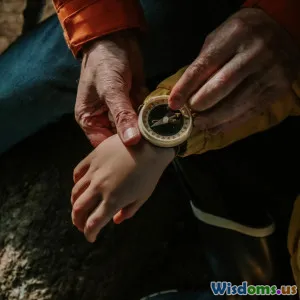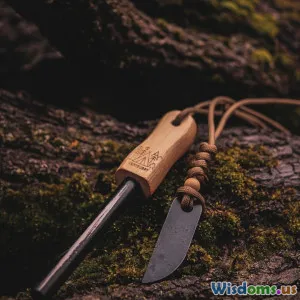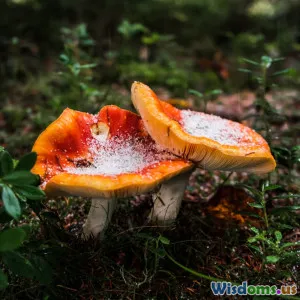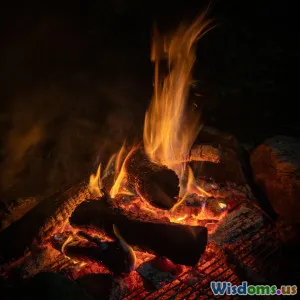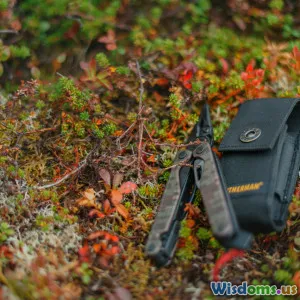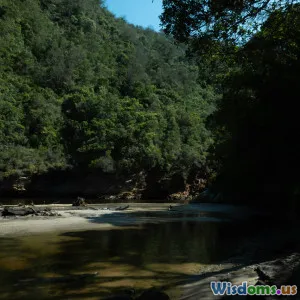
Mastering Wilderness Survival Techniques
6 min read Learn essential wilderness survival skills and techniques to thrive in the great outdoors. (0 Reviews)
Mastering Wilderness Survival Techniques
Wilderness survival is an essential skill set for anyone who loves adventure and the great outdoors. Whether you’re a seasoned hiker or a novice camper, understanding and mastering wilderness survival techniques can make the difference between a thrilling adventure and a potentially dangerous situation. In this article, we will cover the fundamental skills necessary for surviving in the wild, including shelter building, finding food, navigation, and first aid.
1. Understanding the Basics of Survival
Before diving into specific techniques, it’s essential to understand the basic principles of survival, often encapsulated in the acronym "S.P.E.A.R":
- Shelter
- Protection
- Extraction
- Access to water
- Rationing food
These principles guide your actions in a survival situation, ensuring that you prioritize your needs in the right order.
2. Building a Shelter
Creating a shelter is one of the first priorities when you find yourself in the wilderness. The type of shelter you build will depend on the environment, materials available, and duration of your stay.
- Types of Shelters:
- Lean-to: A basic structure that requires minimal materials, ideal for short-term use.
- Debris Hut: Offers better insulation and is suitable for colder climates. It requires a significant amount of leaves and debris.
- Tarp Shelter: Quick to set up and versatile, using a tarp can provide immediate protection from the elements.
Tips for Building a Shelter:
- Choose a dry, flat location away from potential hazards like falling branches.
- Insulate the floor with leaves or pine needles for added warmth.
- Ensure your shelter has ventilation to avoid condensation.
3. Finding Food
In a survival situation, food is a secondary priority after shelter and water. However, knowing how to find food can sustain your energy levels and improve your chances of survival.
- Foraging:
- Identify edible plants such as dandelion greens, wild berries, and nuts. Always verify edibility before consumption.
- Use resources like field guides to learn about local flora.
- Fishing and Trapping:
- Create simple fish traps or use fishing lines if available.
- Learn to set snares for small game using materials found in the environment.
4. Accessing Water
Water is critical for survival, and knowing how to find and purify it can be lifesaving. Look for water sources such as streams, rivers, or ponds but always purify before drinking.
- Purification Methods:
- Boiling: Bring water to a rolling boil for at least one minute.
- Filtration: Use improvised filters made from sand, charcoal, and cloth.
- Chemical treatments: If available, use water purification tablets.
5. Navigation Skills
Knowing how to navigate using natural signs or a map and compass is vital. In the absence of technology, you can still find your way using:
- Landmarks: Recognizing and remembering significant features in your environment.
- Sun and Stars: Using the position of the sun during the day and stars at night for orientation.
- Map and Compass: Familiarizing yourself with reading maps and using a compass can be invaluable in unfamiliar terrain.
6. First Aid Basics
Accidents can happen, and knowing basic first aid can help you manage injuries until help arrives. Key skills include:
- Wound care: Clean and dress wounds to prevent infection.
- CPR: Knowing how to perform CPR can save lives in emergencies.
- Improvised splints: Use sticks and cloth to stabilize broken limbs.
Conclusion
Mastering wilderness survival techniques is not just about enduring the elements; it’s about enhancing your experience and confidence in the great outdoors. With practice and knowledge, anyone can learn these vital skills. Whether you’re planning a weekend camping trip or an extended expedition, equipping yourself with these survival techniques will prepare you for the unexpected and allow you to enjoy nature safely and responsibly.
Rate the Post
User Reviews
Popular Posts











